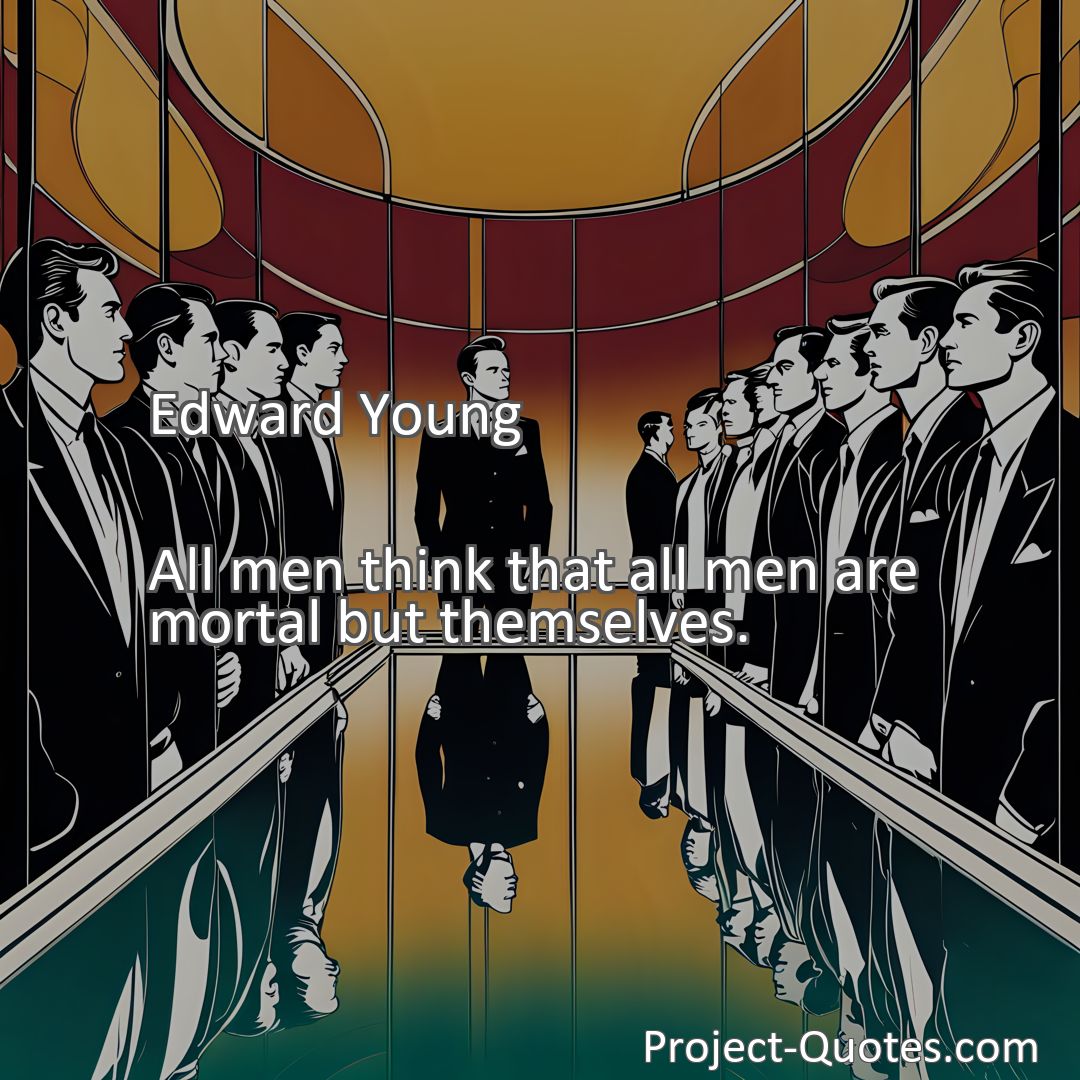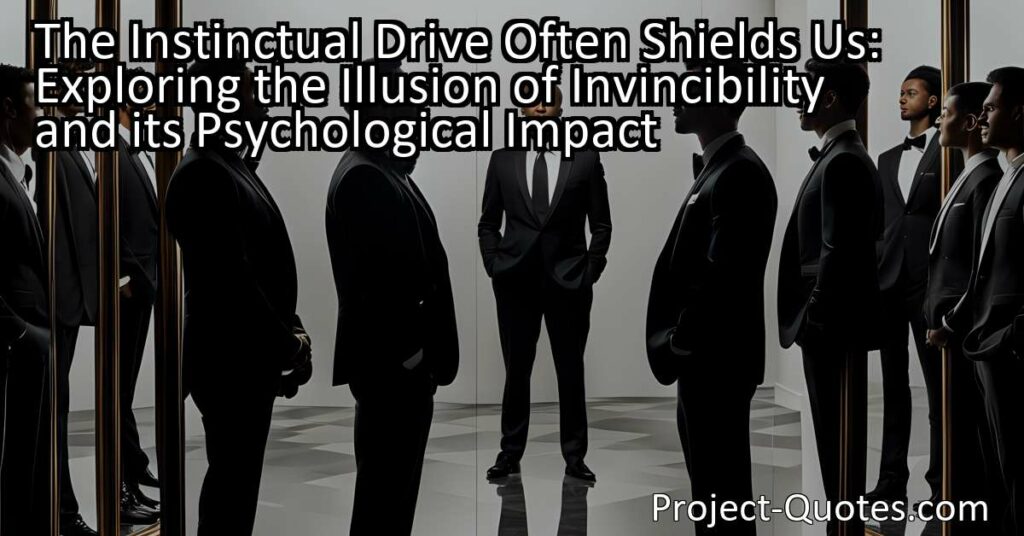All men think that all men are mortal but themselves.
Edward Young
The instinctual drive often shields us from acknowledging our vulnerability and mortality. This belief in our invincibility is influenced by psychological, cultural, and emotional factors. However, embracing our mortality can lead to personal growth and a deeper appreciation for the preciousness of life.
Table of Contents
Meaning of Quote – All men think that all men are mortal but themselves.
We often consider ourselves to be invincible, immune to the perils of life. It is a common mindset shared by many individuals, regardless of age, culture, or background. Edward Young, a renowned poet, eloquently captured this human tendency in his quote, “All men think that all men are mortal but themselves.” At first glance, it may seem like a rather straightforward statement, but upon deeper reflection, it unveils a fascinating truth about human nature.
This quote raises an essential question: Why do we harbor such a belief? Is it a mere result of arrogance or ignorance, or is there a deeper psychological and emotional root to this phenomenon? To understand this better, we must delve into the intricate layers of the human psyche.
One primary factor contributing to this belief is the innate sense of self-preservation. From a young age, we learn to protect ourselves from harm, both physically and emotionally. This instinctual drive often shields us from acknowledging the fragility and impermanence of our existence. We build a mental wall that separates us from the thought of our own mortality, reassuring ourselves that it is a fate reserved for others but not for us.
Moreover, the societal emphasis on achievement and success fuels this misconception. It is deeply ingrained within us that we are exceptional, destined for greatness, and capable of overcoming any obstacle that life throws our way. We strive to surpass our limitations, believing that we possess unique qualities that make us impervious to the common fate of mortality. This persistent optimistic bias acts as a protective mechanism, shielding us from the unsettling notion of our own mortality.
Additionally, the perception of time also plays a pivotal role in solidifying such a belief. In our daily lives, we witness others aging, falling ill, or passing away. We observe the vulnerability and impermanence of the world around us, yet struggle to apply this awareness to ourselves. Time appears to be passing swiftly, and we are caught up in the busyness of our lives, never pausing to reflect on our own mortality. This temporal disconnect further reinforces the illusion of our invincibility.
Furthermore, the fear of death is a powerful force that subconsciously drives us to deny our own vulnerability. The idea of an uncertain future, the unknown realms beyond our existence, and the severance of our earthly ties can be overwhelming. To cope with this fear, we adopt a mindset that helps alleviate the anxiety surrounding mortality. By convincing ourselves that we are exempt from this fate, we create a false sense of security, shielding ourselves from the existential dread that pervades our thoughts.
In addition to these psychological factors, societal constructs and cultural influences also shape our belief in our own immortality. Throughout history, various cultures and civilizations have sought ways to transcend death, seeking eternal life or an afterlife in different forms. These beliefs, ingrained within our collective consciousness, become a part of our identity and contribute to the illusion of immortality. Moreover, the prominence of certain individuals, whether in politics, entertainment, or other fields, further perpetuates the idea of exceptionalism and immortality. We idolize these figures, believing them to be untouchable, even in the face of their own mortality.
Yet, despite our deeply ingrained belief in our invincibility, life has a way of reminding us of our mortality. The loss of a loved one, a personal health scare, or simply witnessing the passage of time can shatter the illusion we have carefully constructed. These moments serve as a wake-up call, forcing us to confront our mortality and reconsider our previous assumptions.
The awareness of our mortality, rather than being a cause for despair, can be a catalyst for personal growth and profound introspection. As we recognize our impermanence, we may find ourselves appreciating the preciousness of each moment, cherishing the relationships and experiences that make our lives meaningful. Embracing our mortality can inspire us to live with purpose, engage in acts of kindness and compassion, and nurture the connections that enrich our lives.
Edward Young, through his insightful quote, highlights the universal tendency to believe in our own immortality. This remarkable human trait is deeply engrained within us, stemming from psychological, cultural, and emotional factors. However, it is crucial to acknowledge the temporary nature of our existence and embrace our mortality as a catalyst for personal growth. Only by confronting our vulnerability can we truly appreciate the fragility and beauty of life. So let us cherish each moment, appreciating the gift of our impermanent existence.
I hope this quote inspired image brings you hope and peace. Share it with someone who needs it today!


